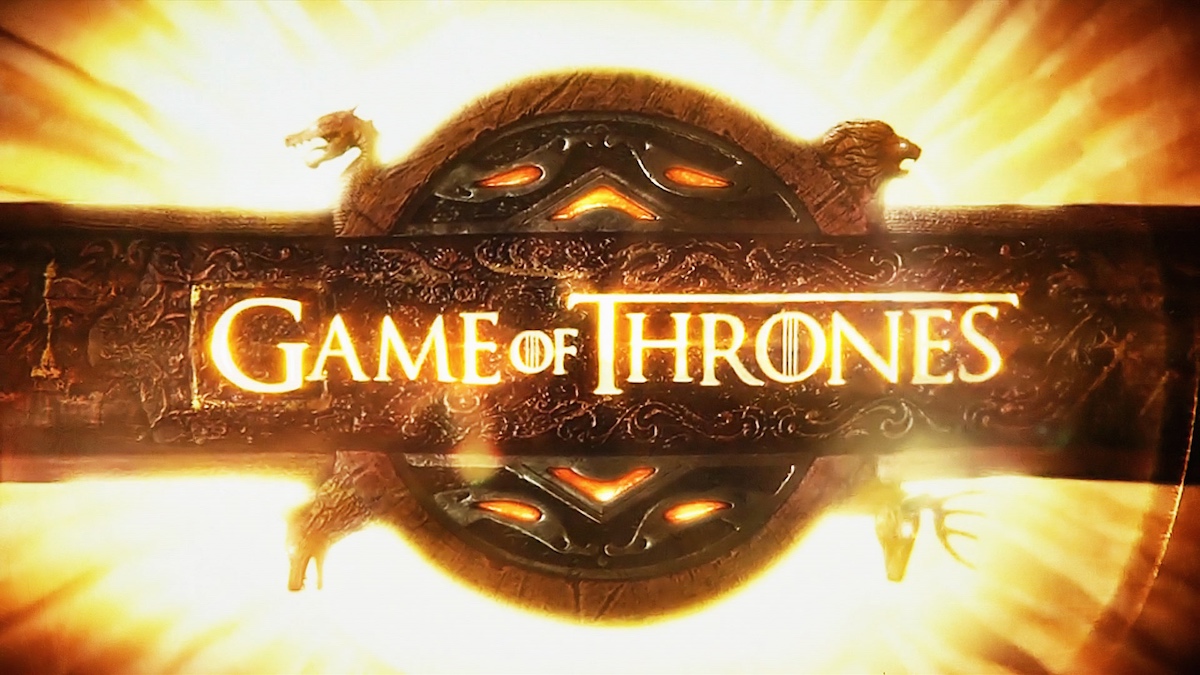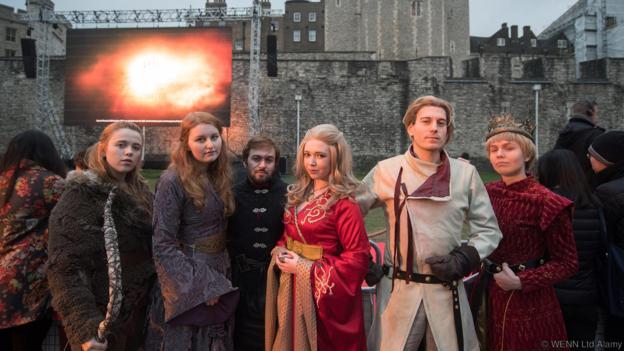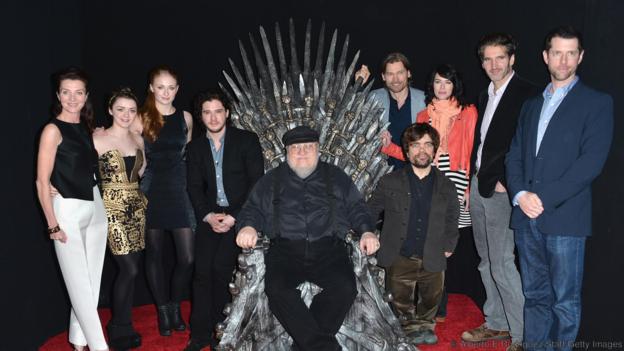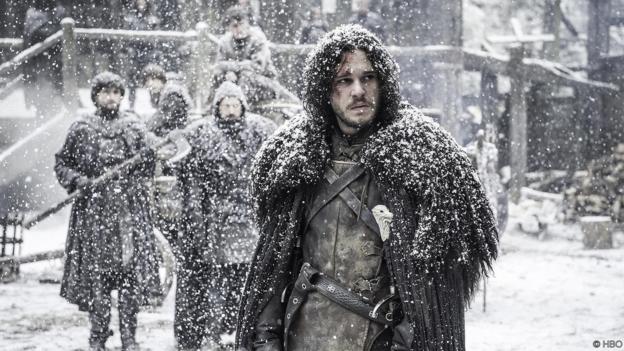How Game of Thrones became a hit

The fantasy epic slowly became a cultural phenomenon over two decades. Why did it face such a long road to success?
Even as far back as 1996, Game of Thrones was fighting its own hype.
Yes, George RR Martin’s A Game of Thrones, the book that formed the basis of the blockbuster HBO television series, came out 20 years ago this August. And yes, at the time, reviewers were griping that “as long ago as 1994”, they had been hearing about the film and TV rights bidding war over Martin’s A Song of Ice and Fire trilogy (which kicked off with A Game of Thrones, and has since become a seven-part series).
David Mathew wrote on Infinity Plus, an early science fiction and fantasy book site, “While a high advance payment is no guarantee of fine writing… it should, in a perfect world, be some indication that what is lumbering forth is a work of promise… In other words, we're talking about hype. However, hype is a marketing device with which this reviewer has no problem. Titanic was hyped: I enjoyed it anyway. Men in Black was hyped: I liked that too. But A Game of Thrones? Well…”
Game of Thrones hype may be one of the few things 1996 and 2016 have in common. The cultural landscape has evolved significantly: internet chatter about such matters has exploded well beyond the early days of Infinity Plus. Big-budget movies such as Titanic and Men in Black are no longer the centre of our cultural conversation; TV has taken over, an idea that was unthinkable back in the days of The Fresh Prince of Bel-Air, Boy Meets World and Family Matters. And most concerned feel that Game of Thrones – in its current incarnation as a television series – earns every bit of its hype.

ETNEJ3 'Game of Thrones' world premiere held at the Tower of London — Arrivals. Featuring: Atmosphere Where: London, United Kingdom When: 18 Mar 2015 Credit: Daniel Deme/WENN.com
If it had been turned into a movie in the ‘90s it would have been watered down
The book series’ long road to TV stardom seems like a kind of fate that fans should all thank the Seven Gods for: if it had immediately been made into a movie in the ‘90s – the more likely scenario for popular books at the time – it would have been hampered by time constraints and possibly watered down to avoid a restrictive R rating in the US, which would have prevented children under the age of 17 from seeing it without an accompanying adult. But it turns out to fit perfectly into our current ‘prestige television’ landscape, ruled by adult content and huge budgets. Even if that does mean Martin’s writing pace – despite the 20-year lag time – can no longer keep up with the TV series his creations inspired as season six gets ready to premiere on 24 April.
Origin story
Martin started his career as a writer with the 1976 fantasy collection A Song for Lya and Other Stories. Well-reviewed but far from a bestseller, he switched to writing for television in the 1980s, working on a Twilight Zone revival and Beauty and the Beast, starring Linda Hamilton and Ron Perlman. So it makes a certain amount of sense that his return to books with A Game of Thrones would lend itself well to television adaptation. “When I describe a scene, I see it in my head much as a director would see a shot,” he told January magazine in 2001. “I see how the light is falling and where the characters are standing – ‘blocking’ they call it in Hollywood – and I think working in Hollywood sharpened my dialog.”
They won the rights from Martin by correctly answering the question “Who is Jon Snow’s mother?”
As far back as that 2001 interview, Martin had been entertaining “some interest” from producers who wanted to adapt the series for film or television. Four years later, a deal was still not imminent – until novelist/screenwriters David Benioff and DB Weiss read the books and loved the idea of adapting them. They won the rights from Martin by correctly answering his comprehension question: “Who is Jon Snow’s mother?” The success of the Lord of the Rings movies had made film a distinct possibility for another fantasy franchise, but they saw opportunity in cable television as well.
At that precise time, US television was in a transition period: the success of The Sopranos had put cable, and specifically HBO, on the map as a purveyor of original, sophisticated, very adult programming not restricted by the boundaries of traditional networks. The Sopranos also ushered in the era of serialised television – shows like 24 and Six Feet Under that require careful viewing of every episode to follow their intricate plotlines, which would surely be a requirement for bringing Martin’s work to the small screen.
Still, HBO wavered over whether to make a fantasy show that would be so drastically different from their trademark series, which tended toward the grittily realistic. And even after HBO tentatively signed on, Benioff and Weiss’s original pilot episode had to be completely reshot before the show finally debuted in 2011 – another six years after the producers had first acquired the rights from Martin. But there was hope from another perspective: the rise of prestige television had paralleled the rise of cult fandoms. The passionate online exchanges among fans of books like Martin’s made them desirable targets for marketing. Suddenly, HBO had proof that a Game of Thrones series would have an intensely engaged audience from the start, and the network’s marketers knew exactly how to reach those fans – right on those websites and message boards where they gathered to discuss the minutiae of the books. If the network got particularly lucky, those fans would become ambassadors to a wider audience.
Indeed, the Song of Ice and Fire book fans rejoiced in the lead-up to the TV adaptation with every spot-on casting announcement: Peter Dinklage would play Tyrion Lannister! Sean Bean would be Eddard Stark! Charles Dance would be Tywin Lannister! HBO pleased fans as well as the author by giving Martin some episodes to write himself. As the series began to air and progress, every iconic character death and catchphrase finally uttered onscreen (“You know nothing, Jon Snow!”) caused old-school fans of the book to rejoice, while the growing TV following experienced the events for the first time.
Geek goes global

HOLLYWOOD, CA — MARCH 19: Actors Michelle Fairley, Maisie Williams, Sophie Turner, Kit Harington, executive producer George R.R. Martin, actors Nikolaj Coster-Waldau, Peter Dinklage, Lena Headey, co-creator/executive producer David Banioff and co-creator/executive producer D.B. Weiss attend The Academy of Television Arts & Sciences' Presents An Evening With "Game of Thrones" at TCL Chinese Theatre on March 19, 2013 in Hollywood, California. (Photo by Alberto E. Rodriguez/Getty Images)
By 2012, after the show had been on the air only one year, Game of Thrones’ fan base was named the most devoted of all fandoms by New York magazine’s Vulture.com, beating out even devotees of Oprah Winfrey, Star Trek, Star Wars and Twilight. By 2013, the show and books had amassed a major worldwide following, with 5.5 million fans registering their allegiance via various Game of Thrones social media outlets. Only a third of those fans were in the United States, where HBO is based.
Once you realise that heroes die, everything becomes that much more terrifying – David Benioff
The growing fan base, of course, has brought with it worldwide pressure from millions for Martin to finish The Winds of Winter, the sixth of what is now expected to be a seven-book series.
With the sixth season of the show premiering on 24 April, the television version will officially start to pull ahead of the books. Though Martin is continuing to consult on plotlines for exactly that reason, he’s also bowed out of public appearances and TV writing duties to focus solely on writing the books.
Benioff and Weiss have attributed A Song of Ice and Fire’s enduring appeal to its complex characters – and its unsparing attitude toward them: “From the first book; the moment where Bran Stark is pushed out of the window, I realised I was reading something different from any other fantasy novel,” Benioff told The Telegraph after the first season. “Any other novel, in fact.
You become so immersed in the characters, and develop so much affection for them, and then all these horrible things happen to them. When Ned Stark dies, it makes you very tense. Once you realise that heroes die, everything becomes that much more terrifying.”
Whatever is hooking fans, it has worked: 20 years after the first book’s release, the series’ television adaptation inspires breathless worldwide coverage with its every move. Its trailers are analysed moment-by-moment. It dominated the 2015 Emmy Awards, even while competing with the final season of Mad Men.
And its huge budgets, prestigious cast and crew, and built-in fan base have made it nearly impossible to imitate in the way that most TV successes immediately inspire a slew of knockoffs. (The Bastard Executioner, created by Sons of Anarchy’s Kurt Sutter, was among the few that tried – and failed.)
Fate has been good to Game of Thrones on its 20-year journey from book to screen. Here’s to hoping – for Martin’s sanity and that of the fans – that it won’t be another 20 before the final book is written and Westeros is finally put to rest.
Политика конфиденциальности | Правила пользования сайтом








